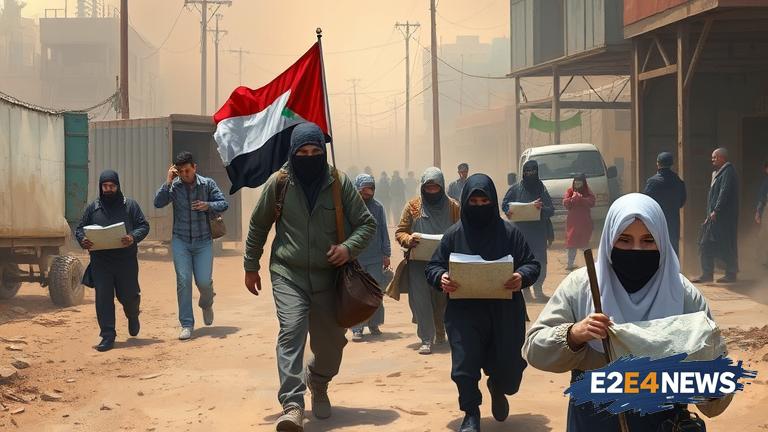The situation in the Gaza Strip has been deteriorating for months, with escalating violence and a worsening humanitarian crisis. The conflict between Israel and Hamas has resulted in significant loss of life, injury, and displacement of civilians. The Gaza Strip, which is home to over 2 million people, is facing severe shortages of food, water, and medical supplies. The healthcare system is on the brink of collapse, with hospitals struggling to cope with the influx of wounded patients. The United Nations has warned of a catastrophic humanitarian crisis, with the potential for widespread famine and disease. In response to the crisis, there are growing calls for a voluntary humanitarian evacuation of Gaza. This would involve the safe and dignified transfer of civilians to a secure location, where they can receive the necessary humanitarian assistance. The evacuation would be facilitated by international organizations, such as the United Nations, and would be carried out in accordance with international humanitarian law. The voluntary evacuation would prioritize the most vulnerable members of the population, including women, children, and the elderly. It would also ensure that those who are injured or in need of medical attention receive the necessary care. The international community has a responsibility to act in the face of this humanitarian crisis, and a voluntary evacuation is a necessary step to prevent further suffering. The evacuation would also help to reduce the risk of further violence and instability in the region. The Gaza Strip has been under a blockade for over a decade, which has had a devastating impact on the economy and living standards. The blockade has restricted the movement of people and goods, making it difficult for civilians to access basic necessities. The humanitarian crisis in Gaza is a complex issue, with deep-rooted causes and consequences. It requires a comprehensive and sustained response from the international community, including the provision of humanitarian assistance, the promotion of economic development, and the protection of human rights. The voluntary evacuation is just one part of a broader response to the crisis, and it must be accompanied by a commitment to addressing the underlying causes of the conflict. The international community must work together to find a lasting solution to the crisis, one that prioritizes the safety and dignity of civilians. The situation in Gaza is a stark reminder of the need for a peaceful and negotiated solution to the conflict, one that respects the rights and dignity of all parties involved. The voluntary evacuation is a necessary step towards achieving this goal, and it must be supported by the international community. The evacuation would also help to alleviate the suffering of civilians, who have been caught in the middle of the conflict. It would provide them with a safe and secure environment, where they can receive the necessary humanitarian assistance and support. The international community has a moral obligation to act in the face of this humanitarian crisis, and a voluntary evacuation is a necessary step to prevent further suffering. The evacuation would be a complex and challenging operation, requiring careful planning and coordination. It would involve the cooperation of multiple stakeholders, including international organizations, governments, and local authorities. The evacuation would also require significant resources, including funding, personnel, and equipment. Despite the challenges, a voluntary evacuation is a necessary step to address the humanitarian crisis in Gaza. It would help to save lives, alleviate suffering, and promote a peaceful and negotiated solution to the conflict. The international community must work together to support the evacuation and to address the underlying causes of the crisis. The situation in Gaza is a stark reminder of the need for a comprehensive and sustained response to humanitarian crises, one that prioritizes the safety and dignity of civilians.
